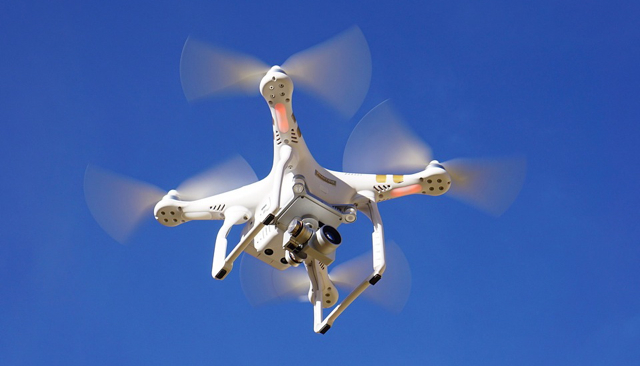The Trump administration is upending the nascent drone industry, proposing legislation that would allow the federal government to track, commandeer, disable or destroy unmanned aerial vehicles. The legislation would include a new exception to surveillance, computer privacy and aircraft protection laws. The administration held a classified briefing for congressional staff members. At the same time, the D.C.-based U.S. Court of Appeals ruled against the FAA requirement for non-commercial drone owners to register their aircraft.
The New York Times reports that it obtained a 10-page “draft and summary of legislation the executive branch circulated among several congressional committees,” detailing the proposed legislation.
Concerned by the proliferation of drones, the 2015 incident when a drone crash-landed over the White House fence, and the potential for terrorists to use drones, the Trump administration’s bill “would authorize the government to summarily track, seize control of and use force to destroy any unmanned aircraft it determines may pose a security threat to an area designated for special protection.”
Recode notes that means that, “an SD card or images stored on the drone could be searched.”
Further, the courts “would have no jurisdiction to hear lawsuits arising from such activity.” The draft bill is “part of the annual National Defense Authorization Act, which is being written by the armed services committees but has not yet been publicly disclosed.” Attending the private briefing were officials from the Defense, Homeland Security, Justice and Transportation Departments, as well as the FBI, the National Counterterrorism Center and the National Security Council.
TechCrunch reports that the D.C.-based Court of Appeals “sided with drone hobbyist John Taylor, who argued that the FAA doesn’t have jurisdiction over what the law classifies as model aircraft.” In its ruling, the court said that the FAA’s drone registration database runs afoul of its own 2012 Modernization and Reform Act, which states that it, “may not promulgate any rule or regulation regarding a model aircraft.”
The database was in response to broad government concerns over privacy and safety. The FAA may appeal the decision, stating that, “we are in the process of considering our options and response to the decision,” but new legislation is also a possibility.
According to Recode, “the law the court said the FAA violated is set to expire in September.” Small UAV Coalition executive director Michael Drobac says that Senator John Thune (R-S.D.), chair of the Commerce, Science, and Transportation Committee, plans to introduce a bill “to address FAA modernization.”
“The goal of the registration rule was to assist law enforcement and others to enforce the law against unauthorized drone flights, and to educate hobbyists that a drone is not just a toy and operators need to follow the rules,” said Hogan Lovells attorney Lisa Ellman, a specialist on drone regulation. “These are worthy goals, so if this ruling stands it wouldn’t surprise us to see a legislative response here.”
The FAA also plans to “craft a way for unmanned aircraft to be remotely identified, which will help law enforcement know who is flying a drone, even if the pilot isn’t visible,” an effort that appears to be a prerequisite for the government to be able to hack, disable or destroy drones.


No Comments Yet
You can be the first to comment!
Sorry, comments for this entry are closed at this time.